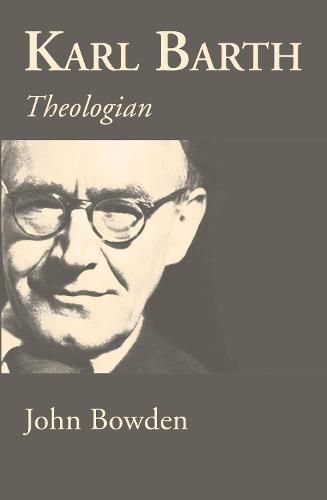Readings Newsletter
Become a Readings Member to make your shopping experience even easier.
Sign in or sign up for free!
You’re not far away from qualifying for FREE standard shipping within Australia
You’ve qualified for FREE standard shipping within Australia
The cart is loading…






In his lifetime, Karl Barth changed the whole pattern of twentieth-century religious thinking. No one has enjoyed a higher reputation or more lavish praise. For his early writings, he was called a prophet and compared with the Reformers and Kierkegaard; Pope Pius XII said that there had been nothing like his later thought since Thomas Aquinas. In his opposition to Nazism and his support for the German Confessing Church he was an inspiration to Christians everywhere. Yet he has also been called an ogre and a sadist, and his writings have been identified as a major cause of the introversion of much modern theology and phenomena like the death of God movement. Moreover, since his death his reputation has gone into a decline, as concerns other than his have come to dominate the theological field. The fact remains that even now Barth cannot be ignored; moreover, he can still be enjoyed, for both in his life and in his thinking there is an infectious element of delight which cannot fail to captivate those who try to understand him. This book, by setting off Barth’s life against his theology, aims at being both an introduction to Barth for those unfamiliar with him and a critical comment on his lasting significance.
$9.00 standard shipping within Australia
FREE standard shipping within Australia for orders over $100.00
Express & International shipping calculated at checkout
In his lifetime, Karl Barth changed the whole pattern of twentieth-century religious thinking. No one has enjoyed a higher reputation or more lavish praise. For his early writings, he was called a prophet and compared with the Reformers and Kierkegaard; Pope Pius XII said that there had been nothing like his later thought since Thomas Aquinas. In his opposition to Nazism and his support for the German Confessing Church he was an inspiration to Christians everywhere. Yet he has also been called an ogre and a sadist, and his writings have been identified as a major cause of the introversion of much modern theology and phenomena like the death of God movement. Moreover, since his death his reputation has gone into a decline, as concerns other than his have come to dominate the theological field. The fact remains that even now Barth cannot be ignored; moreover, he can still be enjoyed, for both in his life and in his thinking there is an infectious element of delight which cannot fail to captivate those who try to understand him. This book, by setting off Barth’s life against his theology, aims at being both an introduction to Barth for those unfamiliar with him and a critical comment on his lasting significance.